Prescription weight loss drugs
Prescription weight loss drugs are medications that are prescribed by a doctor to help individuals lose weight.
These drugs are typically used in conjunction with a healthy diet and exercise program to maximize their effectiveness.
There are several different types of prescription weight loss drugs, including appetite suppressants, fat blockers, and metabolism boosters.
Appetite suppressants work by reducing hunger and cravings, while fat blockers prevent the body from absorbing fat from the diet.
Metabolism boosters increase the body's metabolic rate, helping to burn more calories and promote weight loss.
It's important to note that prescription weight loss drugs are not a quick fix or a substitute for lifestyle changes. They are most effective when used as part of a comprehensive weight loss plan that includes diet and exercise. It's also important to discuss any potential risks or side effects with a doctor before starting any weight loss medication.
In summary, prescription weight loss drugs are medications that can be prescribed by a doctor to help individuals lose weight when used in conjunction with a healthy diet and exercise program.
There are several different types of these drugs, including appetite suppressants, fat blockers, and metabolism boosters. It's important to discuss any potential risks or side effects with a doctor before starting any weight loss medication.

Tirzepatide (Mounjaro)
Mounjaro is a prescription medication used to treat diabetes that has been found to cause weight loss in some individuals.
It works by activating hormones called GLP-1 and GIP receptors, which can improve blood sugar control. During clinical trials for tirzepatide, a type of Mounjaro, researchers observed that people taking the medication lost more weight than those on standard diabetes treatment.
While Mounjaro has not been approved by the Food and Drug Administration (FDA) for use as a weight loss medication, it is sometimes used off-label to treat obesity.
Common side effects of Mounjaro include nausea, vomiting, diarrhea, decreased appetite, constipation, upper abdominal discomfort, and abdominal pain.
It's important to note that Mounjaro is administered by injection under the skin once weekly.
If you are considering using Mounjaro for weight loss, it is important to speak with your doctor about the potential risks and benefits of this medication.

Liraglutide (Saxenda)
Liraglutide, also known as Saxenda, is a prescription weight loss medication that works by mimicking an intestinal hormone that tells the brain that the stomach is full. It is the same drug as the type 2 diabetes medications Sadenxa and Victoza, and has been approved for long-term use.
Common side effects of liraglutide include nausea, vomiting, diarrhea, constipation, and low blood pressure. However, there are also more serious potential side effects, such as raised heart rate, pancreatitis, gallbladder disease, kidney problems, and suicidal thoughts. Additionally, liraglutide has been shown to cause thyroid tumors in animals, although it is not yet known if it can cause thyroid cancer in humans.
It's important to note that if you do not lose 4% of your weight after 16 weeks of taking liraglutide, your doctor may recommend stopping the medication as it is unlikely to be effective for you, according to the Food and Drug Administration (FDA). It is important to speak with your doctor about any potential risks or side effects before starting any weight loss medication.
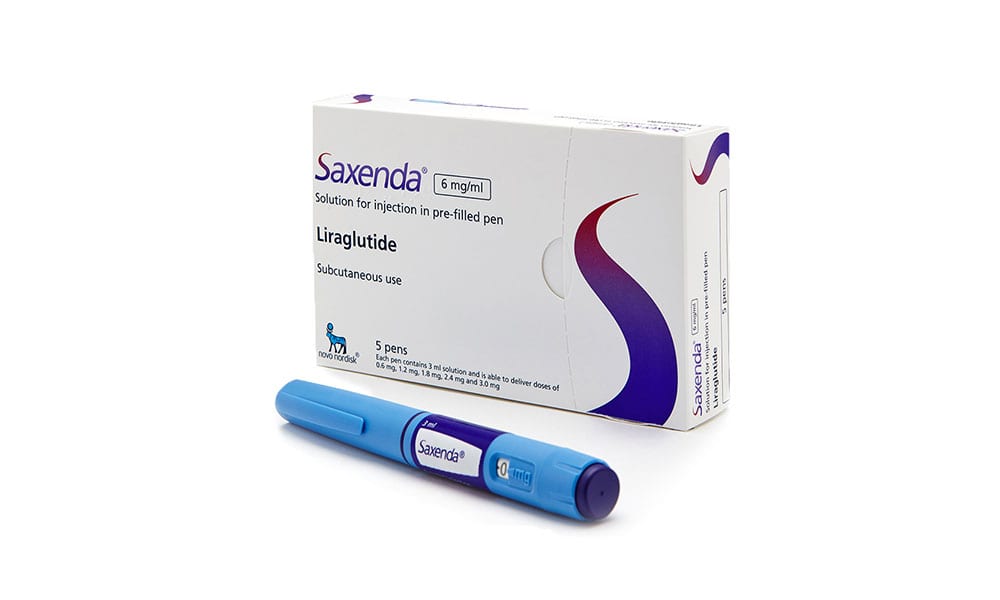
Orlistat (Xenical)
Orlistat is a prescription weight loss medication that blocks the body from absorbing about a third of the fat consumed in the diet. When prescribed by a doctor, it is called Xenical. If obtained without a prescription, it is called Alli and has half the dose of Xenical. Orlistat has been approved for long-term use.
Common side effects of orlistat include abdominal cramping, passing gas, leaking oily stool, having more bowel movements, and difficulty controlling bowel movements. These side effects are generally mild and temporary, but they may worsen if high-fat foods are consumed. There have been rare reports of severe liver injury in people taking orlistat, but it is not certain that the drug caused these problems.
It is important to be on a low-fat diet (less than 30% of daily calories from fat) before taking orlistat. Additionally, a multivitamin should be taken at least 2 hours before or after taking orlistat, as the drug temporarily makes it harder for the body to absorb vitamins A, D, E, and K. Orlistat is the only drug of its kind that is approved in the United States. All other prescription weight loss drugs work by curbing appetite.
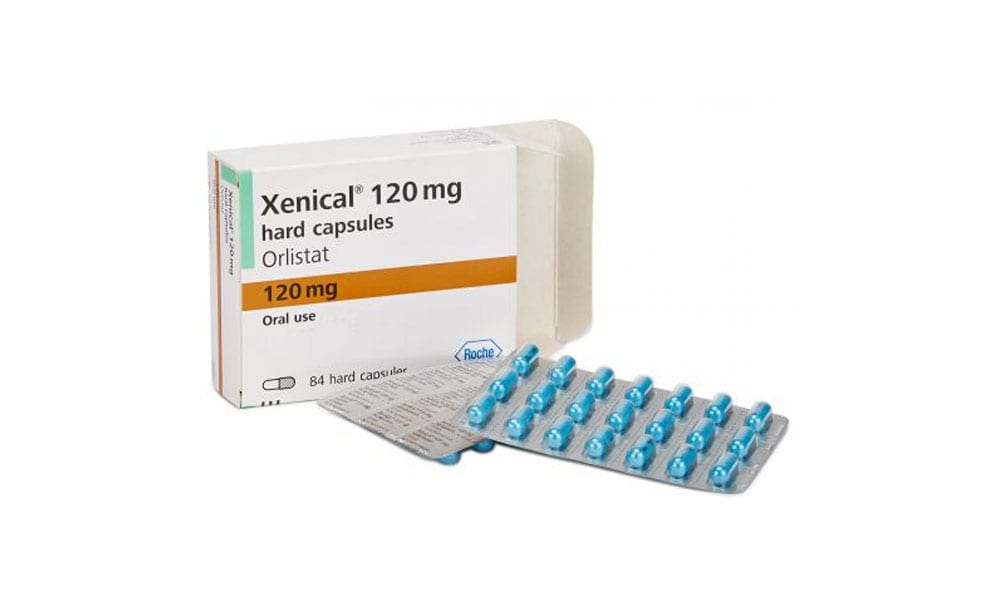
Naltrexone HCl and bupropion (Contrave)
Contrave is a prescription weight loss medication that is a combination of two FDA-approved drugs, naltrexone and bupropion, in an extended-release formula. Naltrexone is used to treat alcohol and opioid dependence, while bupropion is used to treat depression, seasonal affective disorder, and to help people stop smoking. Contrave has been approved for long-term use.
Common side effects of Contrave include nausea, constipation, headache, vomiting, dizziness, insomnia, and dry mouth. It is important to note that Contrave has a boxed warning about the increased risk of suicidal thoughts and behaviors associated with bupropion. The warning also notes that serious neuropsychiatric issues linked to bupropion have been reported. Contrave can cause seizures and should not be used in patients with seizure disorders, and it can also increase blood pressure and heart rate.
If you do not lose 5% of your weight after 12 weeks of taking Contrave, your doctor may recommend stopping the medication as it is unlikely to be effective for you, according to the Food and Drug Administration (FDA). Contrave works by signaling the brain to decrease food intake. If you are considering using Contrave for weight loss, it is important to speak with your doctor about the potential risks and benefits of this medication.
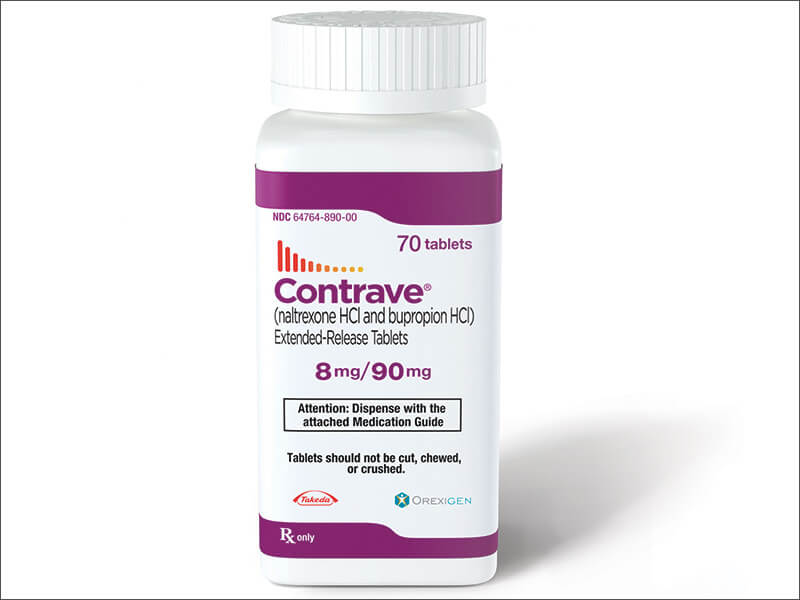
Semaglutide (Wegovy)
Semaglutide is a prescription medication that is used to treat type 2 diabetes and obesity. It works by imitating an intestinal hormone that stimulates insulin production, lowering appetite and making you feel full. Semaglutide is prescribed for the treatment of type 2 diabetes under the names Ozempic and Rybelsus, and is specifically for the treatment of obesity when prescribed as Wegovy. It has been approved for long-term use.
Common side effects of semaglutide include abdominal cramping, constipation, vomiting, passing gas, headache, fatigue, and gastroesophageal reflux. These side effects are generally mild and temporary. In rare cases, issues involving the kidney and blurred vision have occurred. Semaglutide has also been linked to instances of pancreatitis, a disease of the pancreas. If you develop symptoms of pancreatitis, including severe abdominal pain and nausea/vomiting that does not stop, you should seek medical help immediately.
It is important to note that semaglutide may need to be taken for life in order to manage weight, and stopping the medication may lead to the regained of most of the lost weight. It is also recommended to follow a low-calorie diet and exercise program while taking semaglutide. If you are considering using semaglutide for weight loss, it is important to speak with your doctor
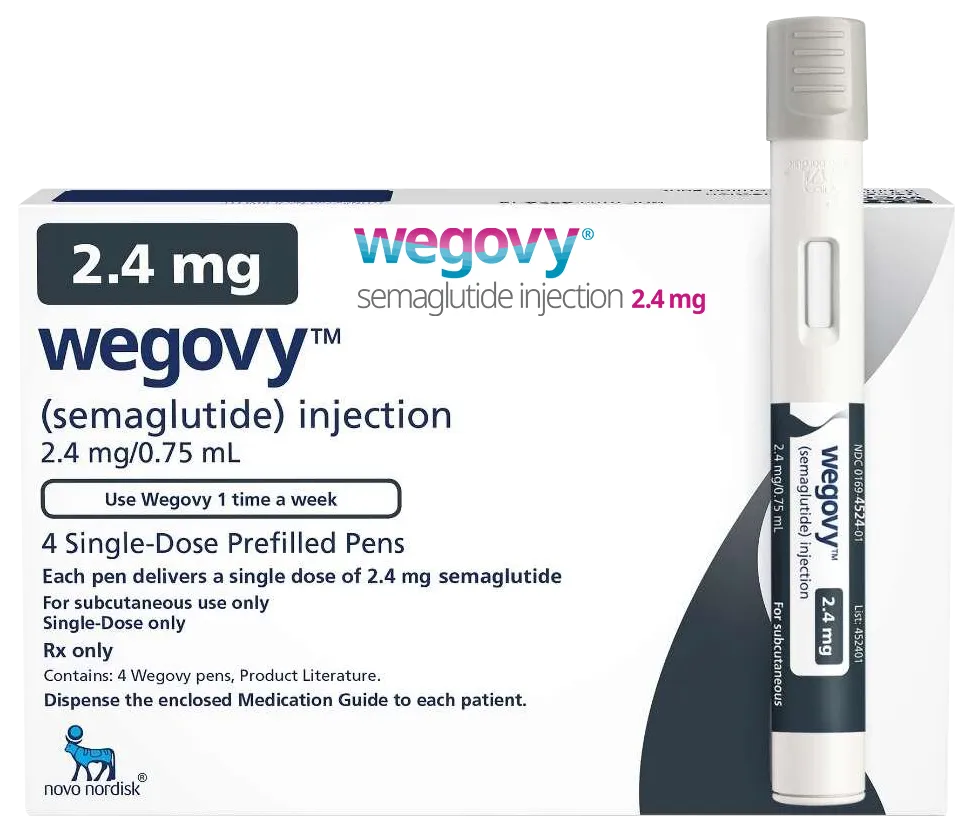
Phentermine
Phentermine is a prescription weight loss medication that works by curbing appetite. It is sometimes prescribed under the names Adipex or Suprenza, but is only approved for short-term use (a few weeks).
Phentermine can cause serious side effects, such as raising blood pressure or causing heart palpitations, restlessness, dizziness, tremor, insomnia, shortness of breath, chest pain, and difficulty completing activities that were previously possible. Less serious side effects include dry mouth, unpleasant taste, diarrhea, constipation, and vomiting. There is also a risk of becoming dependent on the drug. Phentermine should not be taken late in the evening as it may cause insomnia. If you take insulin for diabetes, it is important to let your doctor know before taking phentermine as your insulin dose may need to be adjusted.
Phentermine should not be taken if you have a history of heart disease, stroke, congestive heart failure, or uncontrolled high blood pressure. It should also be avoided if you have glaucoma, hyperthyroidism, a history of drug abuse, or are pregnant or nursing. It is important to note that phentermine is an amphetamine and is classified as a controlled substance due to the risk of addiction or abuse. Other drugs similar to phentermine that may be an option include benzphetamine, diethylpropion, and phendimetrazine. If you are considering using phentermine for weight loss, it is important to speak with your doctor about the potential risks and benefits of this medication.

Phentermine and topiramate (Qsymia)
Qsymia is a prescription weight loss medication that combines phentermine with the seizure/migraine drug topiramate. Topiramate causes weight loss by helping you feel full, making foods taste less appealing, and increasing calorie burning. Qsymia has been approved for long-term use and contains much lower amounts of phentermine and topiramate than when these drugs are used alone.
Common side effects of Qsymia include tingling in the hands and feet, dizziness, altered sense of taste, insomnia, constipation, and dry mouth. More serious potential side effects include certain birth defects (cleft lip and cleft palate), faster heart rate, suicidal thoughts or actions, and eye problems that can lead to permanent vision loss if not treated.
Women who may become pregnant should get a pregnancy test before taking Qsymia and should use birth control and get monthly pregnancy tests while on the medication. Qsymia should not be taken if you have glaucoma, hyperthyroidism, heart disease, or stroke. It is important to get regular heart checks when starting the drug or increasing the dose.
If you do not lose at least 3% of your weight after 12 weeks on Qsymia, the FDA recommends either stopping the medication or increasing the dose for the next 12 weeks. If this does not work, the medication should be gradually stopped. If you are considering using Qsymia for weight loss, it is important to speak with your doctor about the potential risks and benefits of this medication.
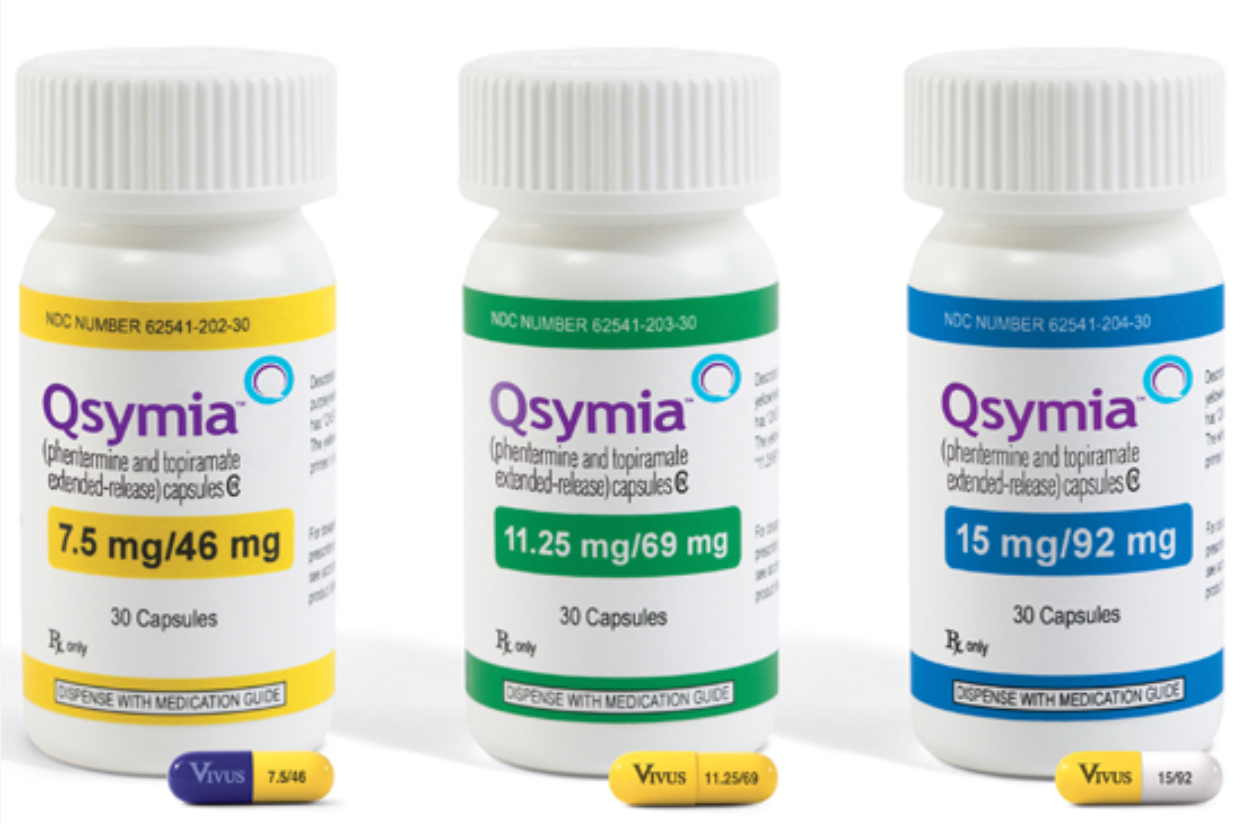
We have a solution for those who wish to lose weight but don't want to take drugs - our top leadinf diets